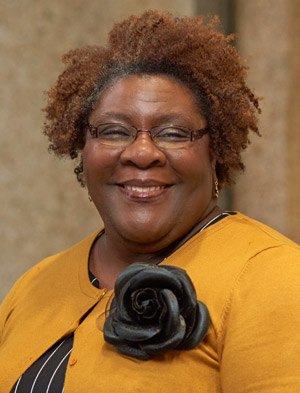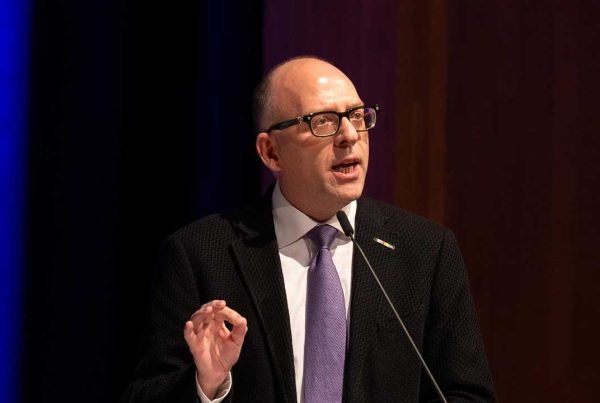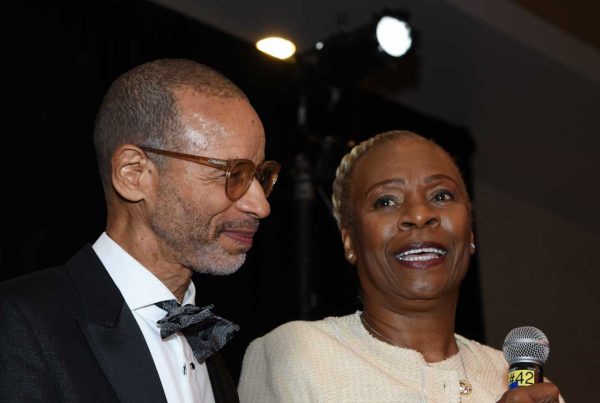 Rev. Dr. Nicole Z. Robertson joined the CTS faculty in 2019 as Assistant Professor of the Clinical Mental Health Counseling Program. On July 1 she will become the program’s director.
Rev. Dr. Nicole Z. Robertson joined the CTS faculty in 2019 as Assistant Professor of the Clinical Mental Health Counseling Program. On July 1 she will become the program’s director.
We (virtually) sat down with Professor Robertson to discuss her background, her approach to counseling, the exciting accreditation progress for the Master of Arts in Clinical Mental Health Counseling (MACMHC), and how an accredited program will benefit students and alumni. Along the way, we learned about her true passions: New Orleans and especially its sports teams!
A nationally certified counselor who is also ordained with standing in the National Baptist Convention, Prof. Robertson was trained as a clinical mental health therapist and a counselor educator and supervisor at Loyola University Maryland. Her dissertation examined the impact of religiousness, spirituality, and africultural coping among African Americans when encountering psychological distress.
Prof. Robertson’s primary research and teaching interests include spiritually integrated counseling, religiousness, and spirituality in the African American community, African American’s amenability to mental health therapy, and an exploration and examination of coping strategies employed when psychological distress is encountered among African Americans. She is a member of the American Counseling Association (ACA), the Association for Counselor Education and Supervision (ACES), and the Association for Spiritual, Ethical, and Religious Values in Counseling (ASERVIC).
Prof. Robertson employs a Cognitive Behavioral Therapy (CBT) orientation to counseling, which she describes as, “a psycho-social intervention used with clients that aims to improve their mental health by focusing on challenging and changing unhelpful cognitive thoughts, beliefs, and behaviors, improving individuals’ emotional regulation, and assisting individuals with developing personal coping strategies that target solutions for current problems.”
A professor with the CBT orientation and approach to student skill development furthers the MACMHC’s stated purpose to help students develop “a professional counseling identity grounded in a variety of theoretical orientations, with an emphasis on relational and depth psychological perspectives; the integration of spiritual/theological and cultural reflection in line with CTS’s commitment to social justice, diversity and advocacy; and the development of clinical mental health counselor competencies.”
In addition to teaching and supervising students, Prof Robertson is playing a key role in the CMHC program’s application for accreditation from Council for Accreditation of Counseling and Related Educational Programs (CACREP). The importance of CACREP accreditation is best understood by starting with brief historical context.
In the early 1980s, counseling programs began developing national training standards for counselors and therapists in order to address the needs of a dynamic, diverse, and complex society. To guide the development of these emerging standards and to govern their application, the two leading counseling associations – the Association of Counseling Education and Supervision (ACES) and the American Counseling Association (ACA) – established CACREP.
The MACMHC program at CTS is, and long has been, aligned with CACREP standards. Now the program is filing for full accreditation, which includes internal assessment in five areas:
- The Learning Environment;
- Professional Counseling Identity (comprised of eight (8) core curriculum areas—Professional Counseling and Ethic Practices, Social and Cultural Diversity, Human Development, Career Development, Counseling and Helping Relationships, Group Counseling and Group Work, Assessment and Testing, and Research and Program evaluation;
- Professional Practice;
- Program Evaluation, inclusive of overall program, faculty, student, and curriculum assessments;
- Program Specialty Areas—Foundations, Contextual Dimensions, and Practice.
The CACREP accreditation will benefit students and graduates. From a recruiting perspective, the program would be more attractive to prospective students who may reside outside of Indiana and would be willing to relocate for the program. Accreditation will provide a wider scope or range of employment opportunities for graduates (nationally) because potential employers recognize the rigor of candidates’ educational experience. There will be more opportunities to work for government agencies that may require potential candidates to have completed a CACREP-accredited program. For graduates pursuing private practice and desiring to be paneled by insurance companies, some companies require that mental health care providers, particularly counselors, are graduates of CACREP-accredited programs.
Prof. Robertson is a native of New Orleans, Louisiana and loves everything about the city, from its music and culture to its cuisine. She has an “undying love” of the city’s national sports teams. Learn more about Prof. Robertson on her faculty page.





